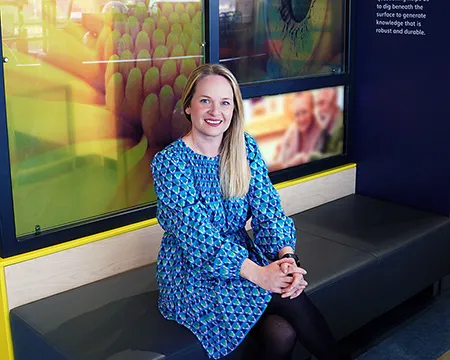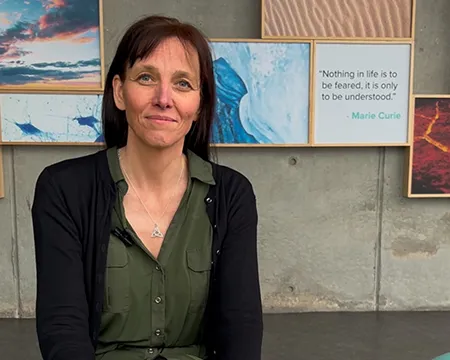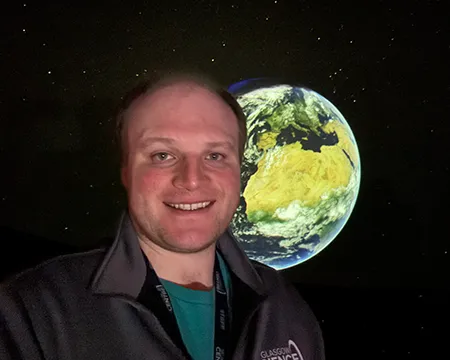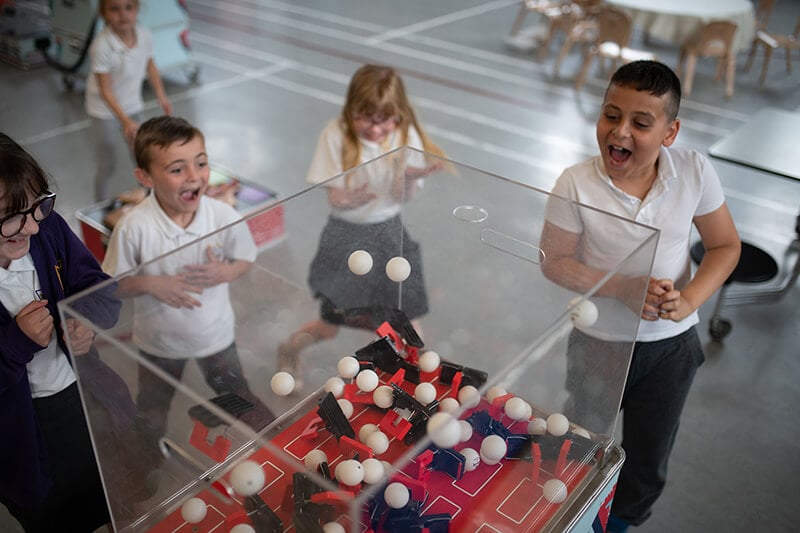Why science needs to change: balance for better in STEM

What do you picture when you think of a world famous scientist? An engineer? A nurse? A lab technician? A zoologist?
Gender bias paints a picture of what these scientists and STEM careers look like. This plays a vital role in whether young people pursue STEM subjects. There are many factors that shape this bias, from the imagery of science portrayed through the media to the reality of gender imbalance in these fields.
This year's International Women's Day (8th March) challenges gender stereotypes in order to build a more gender balanced world. The 8th March is a celebration of women's contribution to society, and as a science centre we want to highlight the importance of gender balance in STEM and celebrate some of the women who are often overlooked when thinking about Science, Technology, Engineering and Mathematics.
Women have played a pivotal role in STEM development, research and discoveries throughout history and continue to be key figures in their fields today. Women like Marie Curie, Ada Lovelace, Jane Goodall, Sylvia Earle and Sally Ride have overcome sexism and gender stereotypes to become household names in the science community and continue to this day to inspire boys, girls, women and men into STEM careers. But unfortunately women are still disproportionately represented in STEM-based careers and disproportionately presented in the communication, imagery and language of science.
UNESCO data shows that less than 30% of researchers worldwide are women. "Globally, female students' enrollment is notably low in ICT (3%), natural science, mathematics and statistics (5%) and in engineering, manufacturing and construction (8%)." These are worrying statistics and show much more needs to be done to encourage and importantly empower girls in STEM subjects. (1)
Long standing biases and gender stereotypes have steered girls and women away from science related fields and this continues to this day. Screen and print media reflect similar biases - "the 2015 Gender Bias Without Borders study showed that of the onscreen characters with an identifiable STEM job, only 12% were women". (1)
In light of International Women's Day, Glasgow Science Centre would like to highlight that in order to achieve greater gender equality in STEM, there needs to be more women portrayed in STEM careers, a greater balance in opportunities in these career paths and everything possible needs to be done to empower girls into STEM learning. Simply stated this means more girls and women in hardhats, lab coats, stethoscopes, behind computer screens and participating in funded research.
The theme of this year's IWD is #BalanceForBetter, a campaign that highlights the importance of equality. GSC believes that it is important to highlight the disparity and missed potential of intelligent women and girls to make groundbreaking research in Science, Technology, Engineering and Maths.
So what is GSC doing?
International Women's Day offers a platform to celebrate and empower women. That's why we chose to celebrate the incredible women of Science, Technology, Engineering and Maths here in Glasgow and at Glasgow Science Centre. This is one way of breaking down misrepresentation of gender and hopefully inspiring young girls to pursue STEM careers through female role models in these sectors.

Glasgow Science Centre is proudly made up of 55% women. We are proud to show school visitors, families and guests a fair representation of science by having science communicators of different genders to aspire to. GSC wants women and girls alongside boys and men visiting the science centre to see female and male scientists and be empowered by them. We also know we play an important role in young lives, in their relationship with science, so we continually challenge ourselves in the imagery, language and communication of science to give a fair and balanced approach to show that everyone has an equal place in STEM careers regardless of gender.
Why gender balance is important
International Women's Day is a celebration of the accomplishments of women, who are too often overlooked by society. We want to build a society that offers the same opportunities to everyone regardless of their gender.

- Marli De Jongh, Research Student, University of Glasgow
The work of organisations like Equate Scotland (3) helps to highlight that there are huge benefits, economically and socially to improving opportunities for women and girls. That's why its important to us at GSC.
Glasgow Science Centre's vision is "a Scotland where all people value science and technology to inform decision making, empower individuals and enrich lives". Women and girls deserve to feel connected to this vision and celebrating female role models and encouraging and empowering girls and women in Science, Technology, Engineering and Maths is a key way of delivering this vision.

- Dr Mhairi Stewart, Head of Public Engagement, University of St Andrews
Building for a better future
Women In Tech point out that under current conditions "The UK gender pay gap won't close until 2069 unless measures are taken to combat it now. That's another 53 years that women will continue to pay a higher price for being female" (2)
So there is a lot of work still to be done. We need to continue to increase representation of women in research, celebrate women in science and encourage girls in maths. To achieve gender balance, we need to be engaged in celebrating all scientists, engineers and mathematicians - innovators regardless of their gender.
Men must play a more important role in addressing sexism and gender bias and speak more openly about the sexism, stereotypes and inequality. This means speaking about gender bias in all aspects of society and that includes STEM careers and education. To deliver gender equality in STEM, men need to stand alongside the many women who are fighting for equal opportunities. Feminism and gender equality are not a women-only issue; they are human issue. It's everyone's responsibility to change society by treating men and women equally.
STEM as a whole will benefit from full participation and fulfilled potential. If everyone regardless of gender has equal access to science, technology, engineering and maths then there is more potential to create groundbreaking research, discoveries and opportunities that will benefit everyone.
References:
(1) http://www.un.org/en/events/women-and-girls-in-science-day/index.shtml
(2) https://www.womenintech.co.uk/gender-discrimination-hindering-tech-industry-growth











